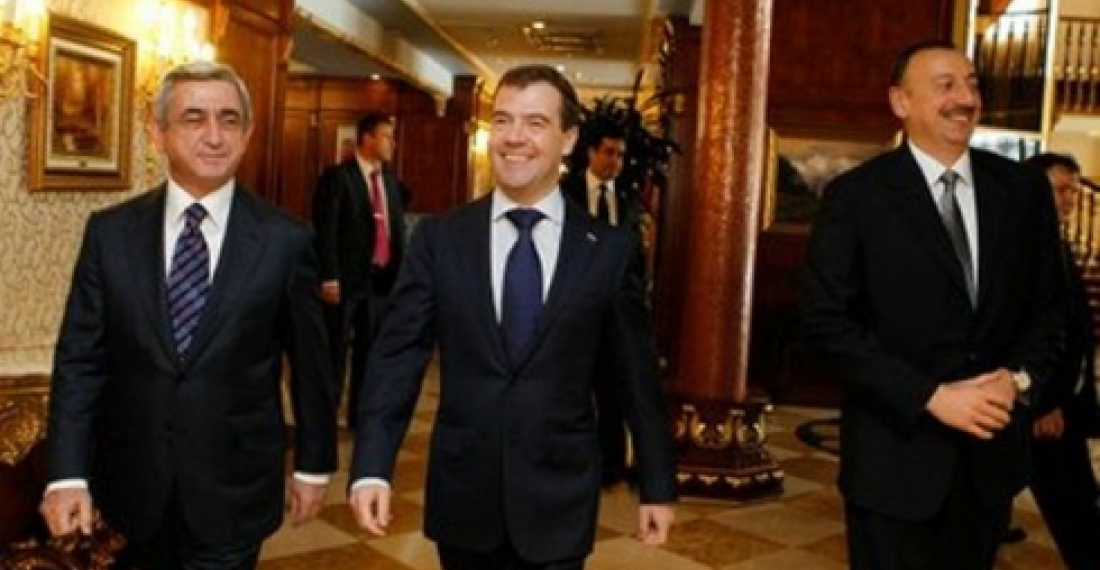The Presidents of Armenia and Azerbaijan will meet again at the end of this month in Sochi at a meeting hosted by the Russian President Dimitri Medvedev. The Armenian website News.am said yesterday that it had been told by "a source" that the meeting will take place at the end of January at the initiative of the Russian leader. The news was later in the day picked up by Azerbaijani media who repeated the news, quoting the same source, but adding that the meeting will be held in Sochi.
If it happens this will be the tenth meeting that President Medvedev has facilitated between President Ilham Aliev of Azerbaijan and President Serz Sargsyan of Armenia in an effort to resolve the conflict over Nagorno-Karabakh since 2008. There was a lot of hope and optimism in the international community last year that a breakthrough could be achieved at the last of these meetings, held in Kazan in June, but the meeting broke up without success, and was followed by a period of mutual accusations from both sides.
Commonspace.eu political editor said in a comment "If the meeting does take place at the end of this month it will help to pick up the momentum for the peace negotiations. It is at the moment politically expedient for the three leaders to be seen engaging in negotiations positively. Behind the scenes the same problems that have frustrated previous negotiations remain, and the talks can only succeed if the leaders attend them with a different frame of mind than they have had so far. There are no signs of this happening yet. The negotiations are now in 'extra time' and at the moment it is difficult to say if 2012 will be a year of peace, war or status quo in the South Caucasus since the ingredients of all three scenarios exist."
Source: Commonspace.eu with News.am, APA and News.az
photo: The Presidents of Azerbaijan, Russia and Armenia at their meeting in Sochi on 5 March 2011 (Archive photou courtesy of the Press Service of the president of Russia)







